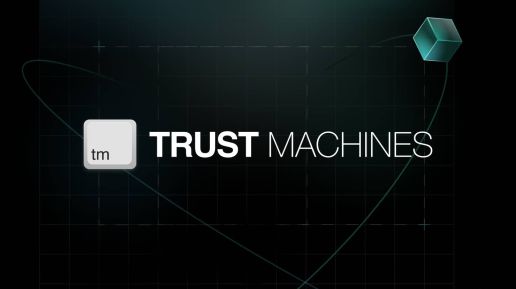The year is 1936. Alan Turing, a young graduate student at Princeton, is hard at work on the “Entscheidungsproblem” or “decision problem” that has confounded mathematicians: determining whether a mathematical statement can be proven to be true or false by an algorithm. Turing is successful where others have failed, and he invents the Turing Machine. This marks the beginning of modern computers, which, together with the internet that connects them, have changed our world profoundly since then.
The year is 2008. Satoshi Nakamoto, an anonymous developer, is working on a new way to enable secure digital money without the need to trust any centralized entity. Satoshi is successful where others have failed, combining brilliant incentive engineering with known cryptography to create a cryptocurrency, Bitcoin. Today, Bitcoin has already reached a trillion dollars in value. The impact, however, is far greater, as Satoshi has—for the first time—solved the decades-old problem of providing trust without centralization in an open, permissionless setting. Satoshi’s foundation of “trust without centralization” can be used for many applications beyond digital money.
Satoshi has pushed us into a new era of computing: from Turing Machines to Trust Machines. Just as the internet transformed communication and the Web transformed access, Bitcoin transforms trust. The implications are likely to be profound.
This new era of computing enables new types of applications and new ways of building existing applications across many areas of human and societal endeavor. These applications have fundamental properties that were impossible to have before: open access without permission; transparent governance (without fear of opaque censorship, corruption, or rent-taking by centralized entities); and a novel, healthy incentive system that creates new business models and value for all.
Other blockchains since Bitcoin have taken the lead in becoming natively programmable platforms for applications, rather than natively only being settlement layers and supporting stores of value, like Bitcoin. However, only Bitcoin provides true decentralization of trust and hence is the only blockchain that actually provides these important properties. Bitcoin is, therefore, by far the best final settlement layer for transactions, and applications of value should perform their final settlement on Bitcoin.
Today, we’re excited to announce that we’ve raised $150M to extend Bitcoin from being only a passive store of value to being the final settlement layer for a powerful new computational platform and to both enable and grow the new economy of applications powered by Bitcoin the money and settling on the Bitcoin blockchain. We’re calling the new company Trust Machines.
Our initial funding comes from a wonderful set of investors, including Breyer Capital, Digital Currency Group, GoldenTree, Hivemind, and Union Square Ventures. Our investors believe in our thesis that Bitcoin is far more than a passive store of value. Like us, they believe in the transformative power of the decentralization of trust that only Bitcoin truly provides and the need for a global final settlement layer that supports the resulting properties described above. They are excited about the opportunities to turn a trillion dollars of Bitcoin into a productive rather than passive asset; to create programmatic demand for Bitcoin and hence the virtuous flywheel of value between applications and platforms that Ethereum has enjoyed; and, most importantly, to transform many areas of finance, business, and society with a new model of interaction, transaction and value creation for all.
Decentralization of Trust
The decentralization of trust, embodied in the Bitcoin blockchain, is one of the most impactful technical innovations of the last couple of decades. The Internet and the Web transformed communication and access, leading to Google, Amazon, social networking, and major changes in how we live our lives. Bitcoin transforms trust. Trust is a central aspect of human activity with great commercial and societal value: money, transactions, assets, arbitration, identity, and governance all depend on trust.
Trust is almost always provided by centralized intermediaries, e.g., commercial banks, governments, or companies. Bitcoin’s breakthrough is in enabling the provision of trust through the technology protocol itself, without needing a centralized entity. This has massive implications across many areas: in finance, business, governance, and society. It allows existing applications to be reimagined—making them more secure, trustworthy, economically efficient, and democratic—and entirely new applications and better business models to be created.
Why Bitcoin?
Bitcoin is by far the most secure, decentralized and economically powerful blockchain—and hence settlement layer for transactions. Immutable, uncensorable settlement is a core requirement for people to have trust in many kinds of applications, and powerful centralized entities have compromised this trust. Bitcoin is also the only sound money among the cryptocurrencies, which is important for applications since they use native cryptocurrencies as money. Other blockchains, like Ethereum, natively provide programmable ‘smart contracts’ and are designed to support flexible applications. Bitcoin is not. In the near term, those blockchains are successful because they have been the only platforms on which to run decentralized applications (although, we are in the early days of this transformation, and no smart contracts platform is yet established enough not to be unseated as a leader). For longer-term success, however, we believe that high-value applications should be built on Bitcoin as the final settlement layer. This is because the transformational properties of trust without centralization (openness, freedom from censorship, and scarcity) are premised on decentralization, security, and durability as strong as that of Bitcoin, which none of the others comes close to providing.
What's Next?
With the initial funding, Trust Machines will build the applications and underlying technology necessary to unleash the true potential of Bitcoin as a final settlement layer. Trust Machines will build upon the success of Stacks, a programming layer for Bitcoin. The Stacks mainnet launch was a major unlock toward making Bitcoin programmable. We will expand on this programming layer to help make it faster and easier to develop on, and we will build applications that make Bitcoin productive, e.g., trustless Bitcoin lending. Our mission is to build the largest ecosystem of Bitcoin applications and grow the Bitcoin economy. We plan to hire Bitcoin Core developers and drive innovative research & development for scalability and functionality layers around Bitcoin.
Muneeb Ali is the CEO of Trust Machines. He has transitioned to board chairman role at Hiro Systems, a developer tools company for Bitcoin layers, where he was previously CEO.


